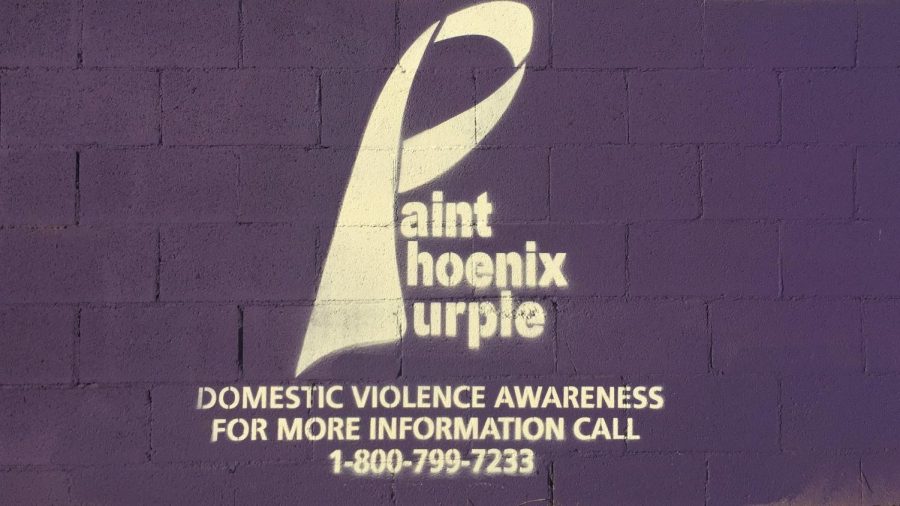Domestic violence happens every minute in U.S.
October 30, 2017
According to a 2010 report by the Centers for Disease Control and Protection, “1 in 3 women and 1 in 4 men have been victims of [some form of] physical violence by an intimate partner within their lifetime.”
Every minute, about 20 people are physically abused by an intimate partner.
Women are in the majority as victims.
But domestic violence happens to anyone and everyone and happens at an alarming rate according to these same statistics.
It does not discriminate among cultures, race, age or gender-although there are reportedly more instances of violence against women.
Loveisrespect.org is a support site that emphasizes the understanding that all violence is violence, whether it’s physical, emotional or psychological. The organization aims to offer resources, information and education on the issue and ways to volunteer or become involved in your community in order to recognize domestic violence and support victims of violence.
There are also quizzes one can take to determine if they are in an abusive relationship.
Bobbi Sudberry, Executive Director and Co-Founder of Kaity’s Way, actively works with her community to educate on the importance of building healthy relationships and spreading the word on teen dating violence.
Sudberry’s daughter, Kaitlyn Marie Sudberry, was tragically murdered at the age of 17.
Since then, Sudberry and her husband, Ric have been on a mission to stop dating violence.
During her presentation at Life Skills High School on October 14, Sudberry highlighted her personal experience with abuse and how she built the strength to leave a toxic relationship. Being raised in an abusive environment as a child, Sudberry found herself in an abusive relationship soon after leaving home.
“That relationship was abusive. Why?…what the heck did I know about healthy relationships? The abuse that was going on in that relationship, I didn’t really even identify it for a long time,” Sudberry said.
Sudberry expressed a thought that many victims struggle with.
“I was a tough girl. How could I possibly be in a relationship where somebody was hurting me? Right? One thing I learned and try to educate people about, it wasn’t my fault. Victims are never to blame for being in an abusive relationship,” Sudberry said.
Sudberry believes that discussing what healthy relationships are is key to breaking away from abusive ones.
Kaitysway.org advocates “P.E.A.C.E.”. The acronym symbolizes the building blocks of a healthy relationship: patience, empathy, acceptance, caring and equality.
Sudberry stressed that looking for solutions to the problem is looking at everyone. What has often been called a private issue is truly a societal one.
“Everyone is a solution to this prevalent issue. Yet not everyone acknowledges domestic or dating violence as an issue. Those of us active in this field need to keep going at it and grow our numbers,” Sudberry told Northeast Valley News.
“We can do this by educating people through presentations and setting up tables at community events. People can become upstanders instead of bystanders. If someone is aware of a situation, don’t stand by and watch it play out, do something, like get help or create a distraction,” Sudberry explained.
“To do nothing is to participate, it is as plain and simple as that,” Sudberry said.
Lynn Spillers, Victim Advocate for the Arizona State University Police Department, offers emotional comfort for all victims of crime and goes the extra mile to lead those who need it into a direction of help. For her, the issue of abusive relationships is one just as important as any other.
Spiller’s role in the ASU community serves as a safe haven for many victims. Not only does she offer her own, personal emotional comfort, but she also gives referrals to resources, guidance and goes through legal processes with victims such as obtaining orders of protection and attending court with them.
“We need to be head on addressing this issue because whenever we see statistics like this where a large number of people are being injured by something, whether it’s a disease or sickness, we’re quick to say okay we need to do research and we need to find out why this is happening.” Spillers said.
She stressed that until we change the way that we think about violence and approach it as it is, an issue that crosses socioeconomic lines, we cannot help the problem.
“Everybody is affected by it. We need to do more. We need to talk about it every day,” Spillers said.


